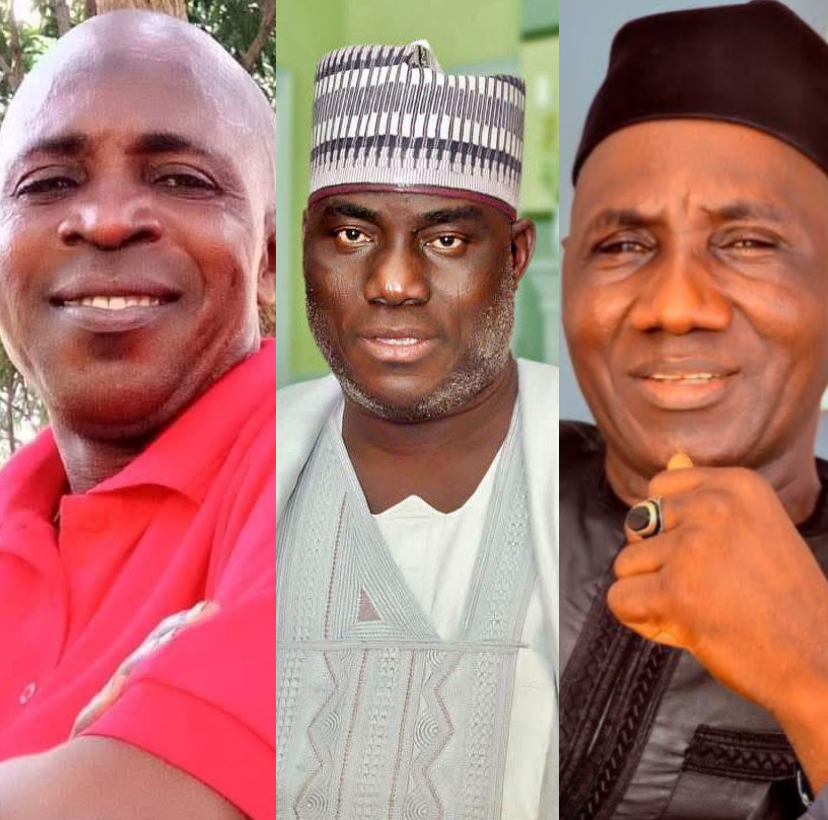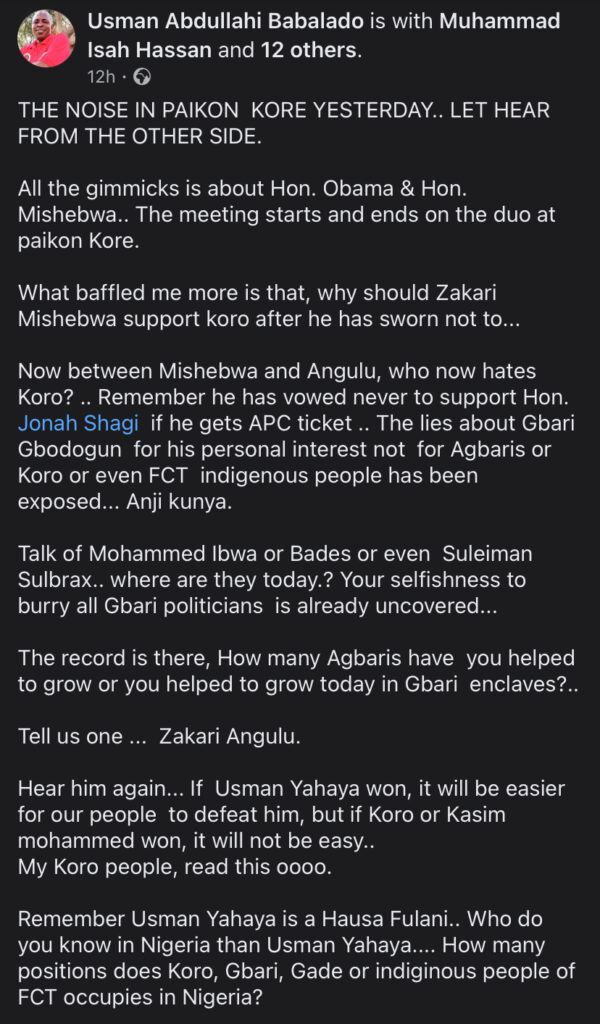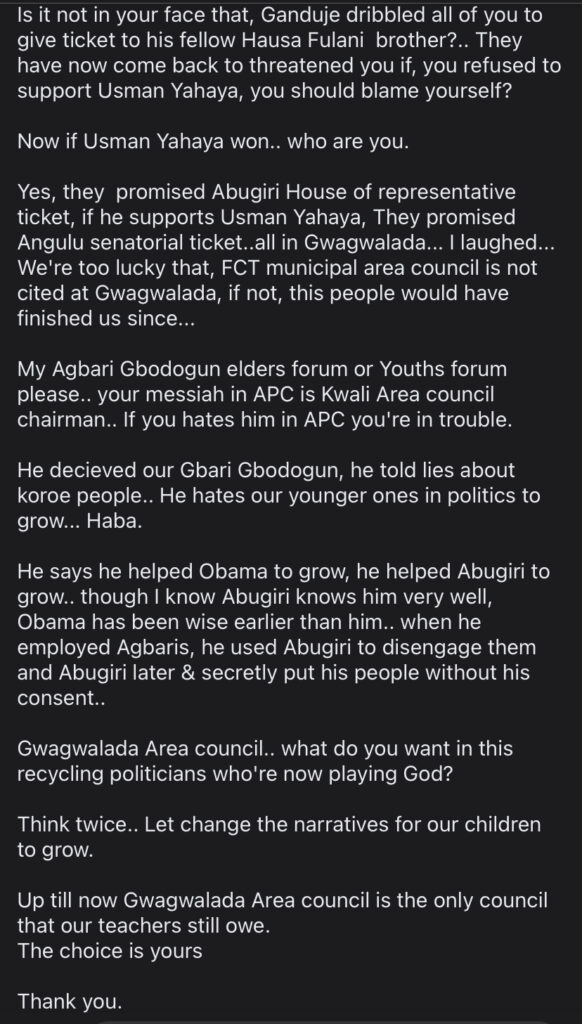
A wave of political tension has erupted in Paikon Kore, Gwagwalada Area Council, following a heated meeting reportedly centered around the rising rivalry between Hon. Obama and Hon. Zakari Mishebwa, two influential figures in the local political landscape.
In a viral Facebook post shared by Usman Abdullahi Babalado, the political atmosphere was described as “noisy” and “chaotic,” with accusations flying over alleged betrayals, shifting alliances, and manipulation within the All Progressives Congress (APC).
According to Babalado’s account, the meeting, initially meant to address local unity and development concerns, allegedly turned into a confrontation over loyalty and personal interests. He questioned Hon. Zakari Mishebwa’s sudden show of support for Hon. Koro, despite previously swearing never to align with him.
“What baffled me more is that why should Zakari Mishebwa support Koro after he has sworn not to? Now between Mishebwa and Angulu, who now hates Koro?” — Babalado wrote.
The post further accused Hon. Zakari Angulu of political hypocrisy, alleging that he has long worked against the growth of young Gbari politicians, while pretending to defend indigenous interests in the FCT.
Babalado’s statement also highlighted deep-seated ethnic and political frustrations among Gbari, Gade, and Koro communities, particularly regarding perceived exclusion from national political appointments and power structures.
“How many positions do Koro, Gbari, Gade, or indigenous people of FCT occupy in Nigeria?” he asked, alleging that recent political deals within the APC favor Hausa-Fulani candidates over indigenous stakeholders.
The post also claimed that key political promises — including alleged offers of House of Representatives and Senatorial tickets to local power brokers — were being used to manipulate grassroots loyalties in Gwagwalada.
“They promised Abugiri House of Representatives ticket if he supports Usman Yahaya; they promised Angulu a Senatorial ticket. All in Gwagwalada. I laughed,” Babalado stated.


Babalado urged the people of Gwagwalada Area Council to “think twice” and reject what he described as “recycled politicians who now play God.” He accused the current local leadership of failing teachers, youths, and grassroots development, warning that history would judge those who continue to trade communal unity for political gain.
The post has since sparked mixed reactions among residents and political observers in the FCT, with many calling for reconciliation, transparency, and a generational shift in the politics of Gwagwalada.
Chronicles Reporters will continue to monitor the situation and seek reactions from the parties mentioned in the post.